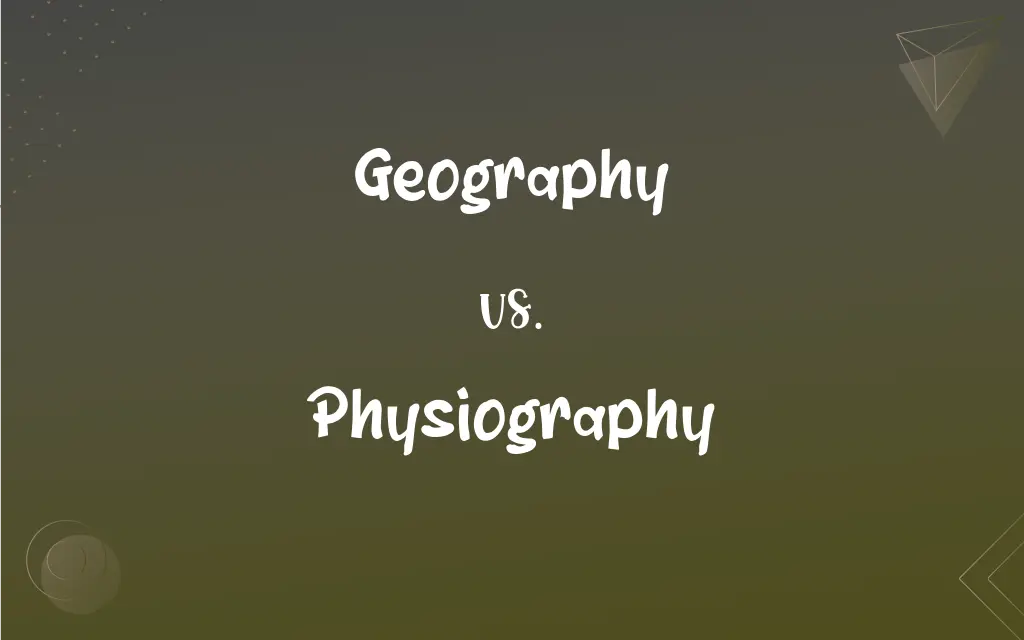Geography vs. Physiography: What's the Difference?

Geography and Physiography Definitions
Geography
The study of the earth and its features and of the distribution of life on the earth, including human life and the effects of human activity.
Physiography
See physical geography.
Geography
The physical characteristics, especially the surface features, of an area.
Physiography
(geography) The subfield of geography that studies physical patterns and processes of the Earth. It aims to understand the forces that produce and change rocks, oceans, weather, and global flora and fauna patterns.
Geography
A book on geography.
ADVERTISEMENT
Physiography
The descriptive part of a natural science as distinguished from the explanatory or theoretical part.
Mineral physiography
Geography
An ordered arrangement of constituent elements
Charting a geography of the mind.
Physiography
The science which treats of the earth's exterior physical features, climate, life, etc., and of the physical movements or changes on the earth's surface, as the currents of the atmosphere and ocean, the secular variations in heat, moisture, magnetism, etc.; physical geography.
Geography
A description of the earth: a treatise or textbook on geography
Physiography
The descriptive part of a natural science as distinguished from the explanatory or theoretic part; as, mineral physiography.
ADVERTISEMENT
Geography
An atlas or gazetteer.
Physiography
The study of physical features of the earth's surface
Geography
The study of the physical properties of the earth, including how humans affect and are affected by them.
Geography
Terrain: the physical properties of a region of the earth.
Geography
Any subject considered in terms of its physical distribution.
Geography
Similar books, studies, or regions concerning other planets.
Geography
The physical arrangement of any place, particularly a house.
Geography
The lavatory: a room used for urination and defecation.
Geography
The relative arrangement of the parts of anything.
Geography
A territory: a geographical area as a field of business or market sector.
Geography
The science which treats of the world and its inhabitants; a description of the earth, or a portion of the earth, including its structure, features, products, political divisions, and the people by whom it is inhabited. It also includes the responses and adaptations of people to topography, climate, soil and vegetation
Geography
A treatise on this science.
Geography
Study of the earth's surface; includes people's responses to topography and climate and soil and vegetation





































































